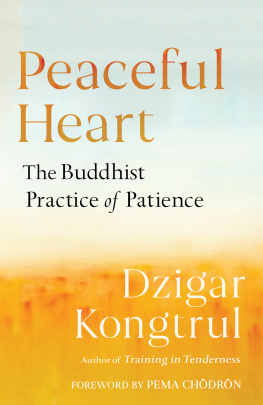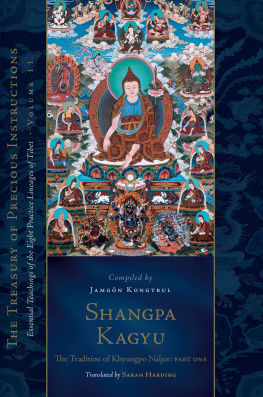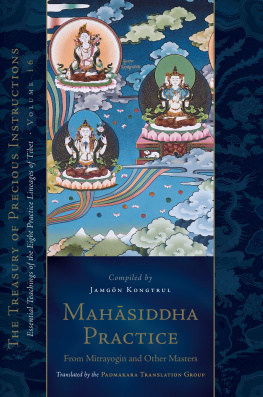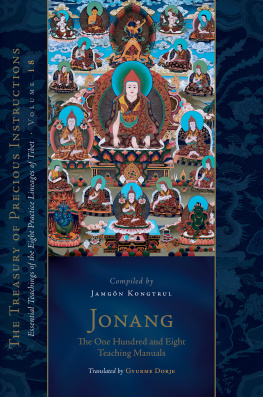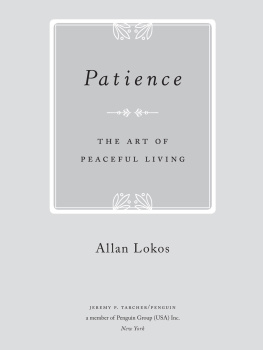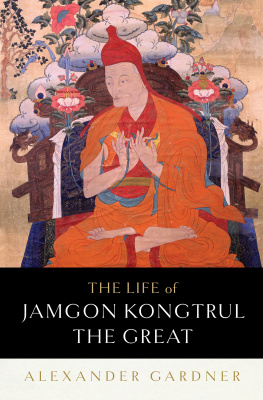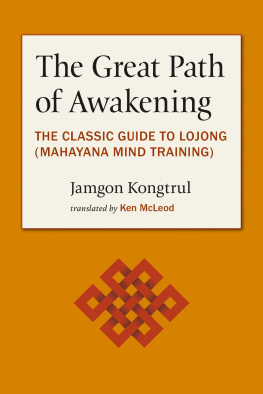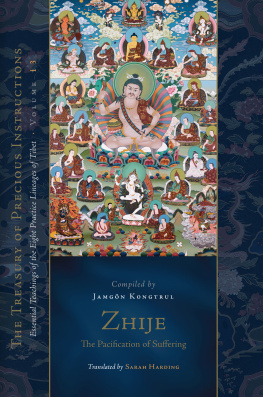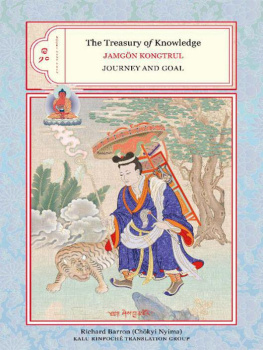Dzigar Kongtrul - Peaceful Heart: The Buddhist Practice of Patience
Here you can read online Dzigar Kongtrul - Peaceful Heart: The Buddhist Practice of Patience full text of the book (entire story) in english for free. Download pdf and epub, get meaning, cover and reviews about this ebook. year: 2020, publisher: Shambhala, genre: Religion. Description of the work, (preface) as well as reviews are available. Best literature library LitArk.com created for fans of good reading and offers a wide selection of genres:
Romance novel
Science fiction
Adventure
Detective
Science
History
Home and family
Prose
Art
Politics
Computer
Non-fiction
Religion
Business
Children
Humor
Choose a favorite category and find really read worthwhile books. Enjoy immersion in the world of imagination, feel the emotions of the characters or learn something new for yourself, make an fascinating discovery.
- Book:Peaceful Heart: The Buddhist Practice of Patience
- Author:
- Publisher:Shambhala
- Genre:
- Year:2020
- Rating:4 / 5
- Favourites:Add to favourites
- Your mark:
- 80
- 1
- 2
- 3
- 4
- 5
Peaceful Heart: The Buddhist Practice of Patience: summary, description and annotation
We offer to read an annotation, description, summary or preface (depends on what the author of the book "Peaceful Heart: The Buddhist Practice of Patience" wrote himself). If you haven't found the necessary information about the book — write in the comments, we will try to find it.
Dzigar Kongtrul: author's other books
Who wrote Peaceful Heart: The Buddhist Practice of Patience? Find out the surname, the name of the author of the book and a list of all author's works by series.
Peaceful Heart: The Buddhist Practice of Patience — read online for free the complete book (whole text) full work
Below is the text of the book, divided by pages. System saving the place of the last page read, allows you to conveniently read the book "Peaceful Heart: The Buddhist Practice of Patience" online for free, without having to search again every time where you left off. Put a bookmark, and you can go to the page where you finished reading at any time.
Font size:
Interval:
Bookmark:

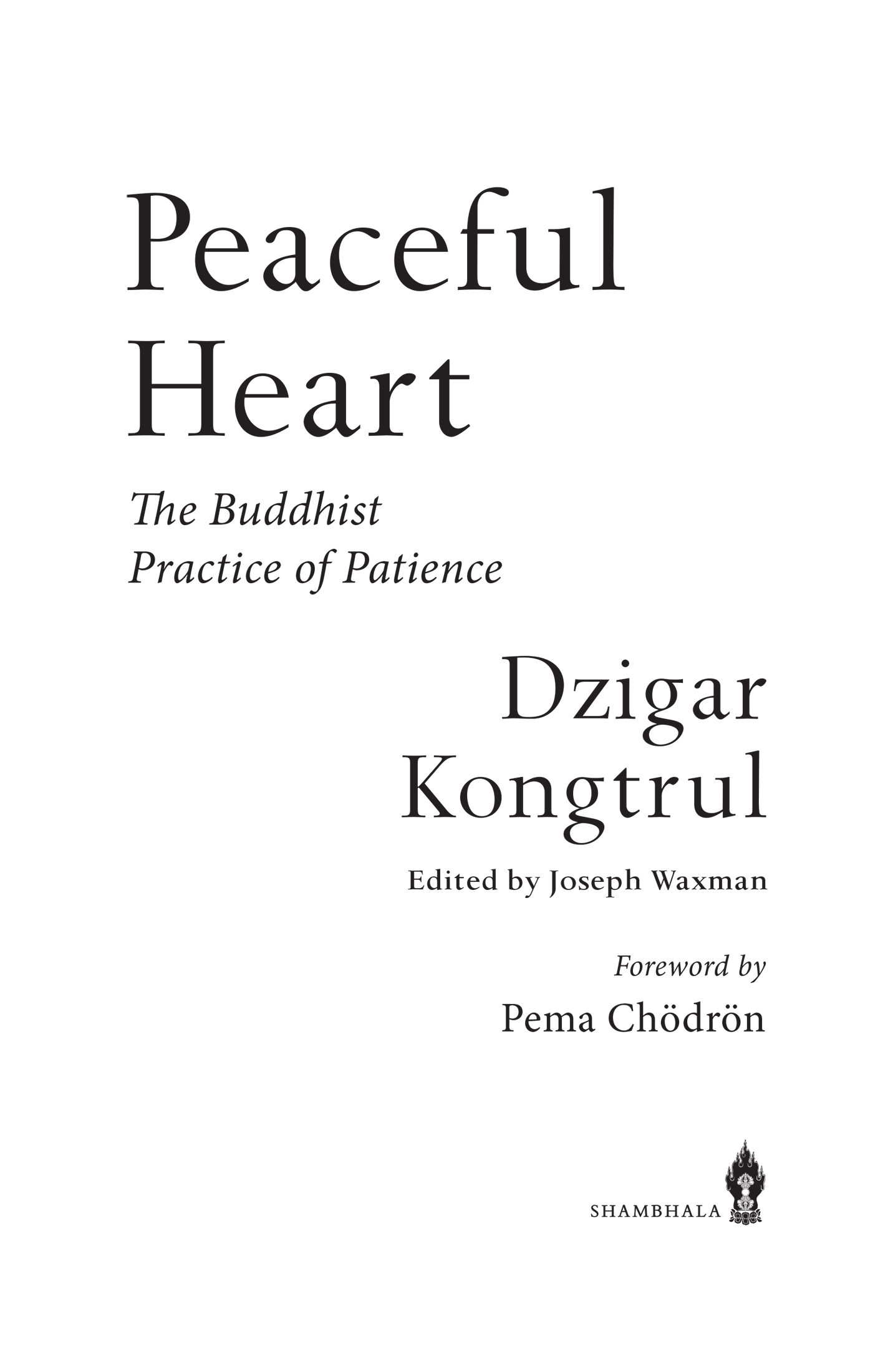
Shambhala Publications, Inc.
4720 Walnut Street
Boulder, Colorado 80301
www.shambhala.com
2020 by Dzigar Kongtrul
The translation of the verses of the Patience Chapter, from The Way of the Bodhisattva (Boulder: Shambhala, 2006), is used by permission of the Padmakara Translation Group.
Cover art: Field Of Dreams 6 by Dzigar Kongtrul
Cover design: Daniel Urban-Brown
Interior design: Kate Huber-Parker
All rights reserved. No part of this book may be reproduced in any form or by any means, electronic or mechanical, including photocopying, recording, or by any information storage and retrieval system, without permission in writing from the publisher.
For more information please visit www.shambhala.com.
Shambhala Publications is distributed worldwide by Penguin Random House, Inc., and its subsidiaries.
Library of Congress Cataloging-in-Publication Data
Names: Kongtrul, Dzigar, author.
Title: Peaceful heart: the Buddhist practice of patience / Dzigar Kongtrul.
Description: First. | Boulder, Colorado: Shambhala, 2020.
Identifiers: LCCN 2020017030 | ISBN 9781611804645 (trade paperback)
eISBN 9780834843233
Subjects: LCSH : ntideva, active 7th century. Bodhicaryvatra.
PatienceReligious aspectsBuddhism. | BuddhismDoctrines.
Classification: LCC BQ 3147 .K66 2020 | DDC 294.3/444dc23
LC record available at https://lccn.loc.gov/2020017030
a_prh_5.6.0_c0_r0
Books by Dzigar Kongtrul
Heart Advice
The Intelligent Heart
Its Up to You
Light Comes Through
Like a Diamond
Training in Tenderness
Uncommon Happiness
It may appear that were living in exceptionally wild, heated, and unpredictable timesand in a sense we are. As each month goes by, the news of the world becomes more heartbreaking and surreal. But at the same time, much of the human experience has always been distressing, chaotic, and nerve-racking. This is because our minds tend to be in a state of perpetual struggle. We dont know what the world might throw at us next or what troublesome thoughts or feelings might pop up in our minds. Andeven more alarminglywe dont know how well react to whatever comes up. The only certainty, it seems, is that we will keep getting activated and making things worse. As members of Homo sapiens, this is one of our talents.
According to the Buddhist teachings, however, we are not stuck in this hopeless situation. This is because no human being is inherently unwholesome or confused. However we may appear on the outside, in the depth of our being every one of us is kind, compassionate, and wise. The only problem is that we lack perspective and skill in working with our stormy, tricky, and often-bewildered minds.
Dzigar Kongtrul Rinpoche has written this wonderful new book to help us gain such perspective and skill. The focus of Peaceful Heart is the practice of patience, which is the most effective antidote to some of our most problematic states of mind, especially anger and jealousy. This book expands on the Patience Chapter from The Way of the Bodhisattva, a timeless classic of Buddhist wisdom by Shantideva, an eighth-century monk who has been one of my greatest teachers and inspirations.
Shantideva and Kongtrul Rinpoche both emphasize that the main object of patience is not other people or situations but our own minds. They show us how to train in sitting still with the restless energy inside us, in being present with the irritation and resentment that makes us feel like were about to explode. This is not a matter of grinning and bearing it but of reframing our attitude toward discomfort and learning how to relax in the midst of our own edginess.
In the more than two decades since Ive met Rinpoche, he has given me many priceless instructions on how to work with my own impatient states of mind. Many of his colorful phrases and examples have stuck in my mind and made their way into my own contemplations and teachings. One of my favorites, which I borrow often and which you will find in this book, is the propensity to be bothered. Wherever and whenever we live, no matter how perfect or imperfect our world is, working with this propensity is indispensable to our well-being. It is the only way to achieve a peaceful heart. May this book help you reach such a joyful state, from where you will be able to bring much goodness into our turbulent world.
Pema Chdrn
A few years ago, I was in Varanasi, India, an ancient city on the Ganges that is considered holy in several religious traditions, including Buddhism. Every day at dusk, thousands of pilgrims come to take part in a Hindu ceremony in which they make offerings to the river to wash away their sins. One evening, I was part of the immense crowd returning from the ceremony when I noticed many people in a certain area having an intense reaction of shock and concern. When I got closer, what I saw made my heart leap out of my chest. On the pavement, in danger of being trampled, was a tiny infant, not much bigger than a melon, lying on a thin cloth. The parents had placed the baby there to attract alms. The baby was wide awake, moving, naked. My heart filled up with concern for this child. Then I realized all the people around me were reacting in the same way. All our hearts were completely occupied by concern.
What accounted for this strong common response? No one would have paid much attention to a baby doll on the ground. But this was a living beingan innocent child in a dire and painful situation, so vulnerable, so much in need of protection, stability, and improved conditions. The baby was no different from the rest of uscapable of experiencing comfort, joy, and happiness as well as discomfort, pain, and suffering. It took no time for every witness to process this. We all knew instantly that the baby was just like us, which triggered our feelings of deep warmth and care. I saw this as a reflection of the basic tenderness of heart we are all born with.
Though it is often invisible, our tender heart is with us at all times, always with the potential to come into the open and connect us to our world. The sight of the baby was an extraordinary circumstance that brought out this potential in all the witnesses. But even when were not presented with such a compelling scene, we always have the basis for tenderness in our heart. We have the capacity to feel love toward all living beings, to care about their needs and their happiness just as much as we care about our own. This innate quality of a warm, open heart is known in Tibetan as tsewa. This is the main subject of my previous book, Training in Tenderness, but here I would like to say a little more about it, especially in terms of how it connects to the practice of patience.
For most of us in these modern times, life is full of busyness, drive, and speed. When we are caught up in this outer activity day and night, it is difficult to connect deeply to ourselves and others. Unless we want to stay in this disconnected state, we need to find some gaps in day-to-day life where we can pause and look within. These are opportunities to ask ourselves some basic, but indispensable, questions: What am I trying to achieve? Why? What am I so fixated on? Why? What exactly goes on inside me, minute by minute, hour by hour, day by day? What do I feel? What is my view of life? What are my greater aspirations?
Font size:
Interval:
Bookmark:
Similar books «Peaceful Heart: The Buddhist Practice of Patience»
Look at similar books to Peaceful Heart: The Buddhist Practice of Patience. We have selected literature similar in name and meaning in the hope of providing readers with more options to find new, interesting, not yet read works.
Discussion, reviews of the book Peaceful Heart: The Buddhist Practice of Patience and just readers' own opinions. Leave your comments, write what you think about the work, its meaning or the main characters. Specify what exactly you liked and what you didn't like, and why you think so.

